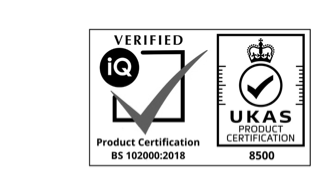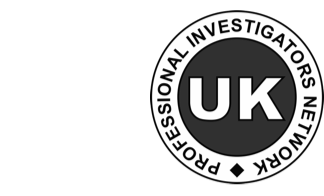- Returning to Work after Furlough?
- How Has Lockdown Impacted our Employee Investigations?
- Staff Mental Health on Return to Work
- Signs of Timesheet Fraud
- How Can Employers Support Their Returning Workforce?
- Why Aren’t Employees Returning to Work After Furlough?
- Strategic Partnerships Informing our Work
At present, the Government has extended their Coronavirus Job Retention Scheme until September 2021. Employers now have until autumn to arrange practices which support both business success and those returning to work after furlough.
People are already reporting feeling anxious about returning to ‘normal life’. While the pandemic has had terrible impacts, the national lockdowns have given us more control over our priorities than before.
Adjusting to the altered state of staying at home has meant finding ways to be comfortable by ourselves. Now that the government’s ‘Roadmap’ has been announced, social anxiety is on the rise. Some worry about adjusting to seeing their friends and colleagues again or pressure to get back to normal quickly.

We’ve had more time for self-care, outdoor activities and family than many working people had before. Many are concerned that they will be pressured to give up this slower pace of life when returning to work.
Returning to Work after Furlough?
Because of these concerns, employers may wonder how best to support their returning staff, and what to do if difficulties arise. In a small number of cases, it is foreseeable that an employee may take advantage, using dishonest means to avoid returning. Timesheet fraud, moonlighting and taking unnecessary sick leave are some events employers should look for.
How Has Lockdown Impacted our Employee Investigations?
Over the last year, corporate investigations and employee investigations have had a different tenor. While many staff are working from home or on furlough, employers’ concerns have been related to timesheet fraud and moonlighting.
Staff whose wages are claimed back as furlough are unable to work for the company for the period. Any employers asking staff to work while they’re furloughed can be reported to HMRC for tax fraud. However, if the employment contract does not prohibit it, the furloughed employee can get another job to supplement their income.

In cases where an employee’s contract prohibits them from taking a second job, they should not be working for anyone during furlough. Employers are within their rights to grant a temporary change to the contract. However, if an employee does not disclose their second job, or it becomes a conflict of interest, this could cause significant problems for the business.
Employee investigations can help business leaders and HR departments understand what is happening with their staff during furlough. If you suspect that an employee is working elsewhere when they shouldn’t be, consider working with a private investigator to verify the facts before proceeding.
Staff Mental Health on Return to Work
While the end of lockdown signals a return to much-missed activities, employees returning to work may have mixed feelings. Going ‘back to normal’ may cause increased stress as employees adjust to a faster-paced routine. They may feel anxious about working face-to-face with colleagues, crowded commutes or increased oversight. If these concerns are not addressed at the outset, they may cause reduced productivity or low workforce morale.

Some employees may prefer to stay at home, and many companies are introducing hybrid working policies to allow people to continue working from home some of the time. However, when working from home long-term is not possible, businesses may need to be wary of those who try to take advantage.
Signs of Timesheet Fraud
If a business workforce is largely working from home, employers may find it more difficult to keep track of their productivity. A concern among many employers is that their workers are committing timesheet fraud, particularly if they are paid hourly. Timesheet fraud could mean inflating hours by rounding up to the nearest hour, false data entry or
However, this is only likely to be true in a small number of cases. Taking a generalised, hard-line approach and increasing observation of employees could be counter-productive, leading to higher levels of stress and lower productivity across the workforce. Instead, look for these signs to understand who may be committing timesheet fraud.
- Hours reported don’t match work done
- Large amounts of time reported to intangible tasks such as ‘Admin’
- Employees are unresponsive on the usual channels during working hours
- Unusually high overtime hours
- Reports of employees being seen in the community when they say they’re at work
How Can Employers Support Their Returning Workforce?

- Enable hybrid working with processes that suit all locations. This should ensure knowledge and resources can be shared in one online area, with a minimum of communications channels to avoid confusion and information overload.
- Be understanding, ease in – staggered starts. Don’t let people come back with a rush, as this could easily lead to burnout. At the same time, ensure people feel they have time to adjust to being back in the office.
- Ensure the workplace is covid-secure and communicate changes to staff.
- Encourage people to talk about their concerns – dishonesty and excuses come when people don’t feel their bosses will understand the truth. Being open about mental health in the workplace can support employees to work out a plan for return that is beneficial for both parties.
Why Aren’t Employees Returning to Work After Furlough?
With so much concern about returning to the workplace, it is not unforeseeable that a minority of workers will attempt to stay out of work as long as possible after furlough ends. It may be that an employee claims sick leave shortly after the return, but can’t provide a doctor’s note. Perhaps a staff member who has taken a second job secretly continues working for both companies, causing a conflict of interest and a loss of productivity.
These situations after the end of furlough could put employers in a difficult situation. Terminating the employment without evidence of misconduct could lead to claims of unfair dismissal. It is best to have clear evidence before you make any decisions.

RevealPI offer Employee Investigations to SMEs and larger companies. Our experienced team begins by finding patterns of behaviour which may indicate fraud and moonlighting. We may then use surveillance, GPS vehicle tracking or other investigation techniques to understand where the employee is going during working hours, or whether their sick leave claim is justified.
We can provide time-stamped video or photographic evidence of the employee’s activities, as well as a robust report to explain our findings. This will assist any decisions the employer makes.
Strategic Partnerships Informing our Work
In 2020, we began a strategic partnership with Centric HR, Human Resources experts. Centric HR provides expert operational and strategic advice to inform our corporate investigations. This relationship supports our team with professional perspectives on investigative approaches and limitations when we plan employee investigations.
Ever considered hiring a private investigator for an employee investigation? Call Reveal PI Today at 0330 808 9344 or visit 11 St Paul’s Square, Birmingham, West Midlands B3 1RB.

 Surveillance
Surveillance Matrimonial Investigations
Matrimonial Investigations Bug Sweeping
Bug Sweeping GPS Vehicle Tracking
GPS Vehicle Tracking Lie Detector Test
Lie Detector Test Person Tracing
Person Tracing Employee Investigations
Employee Investigations Asset Tracing
Asset Tracing Fraud Investigations
Fraud Investigations Injury & Insurance Investigations
Injury & Insurance Investigations








